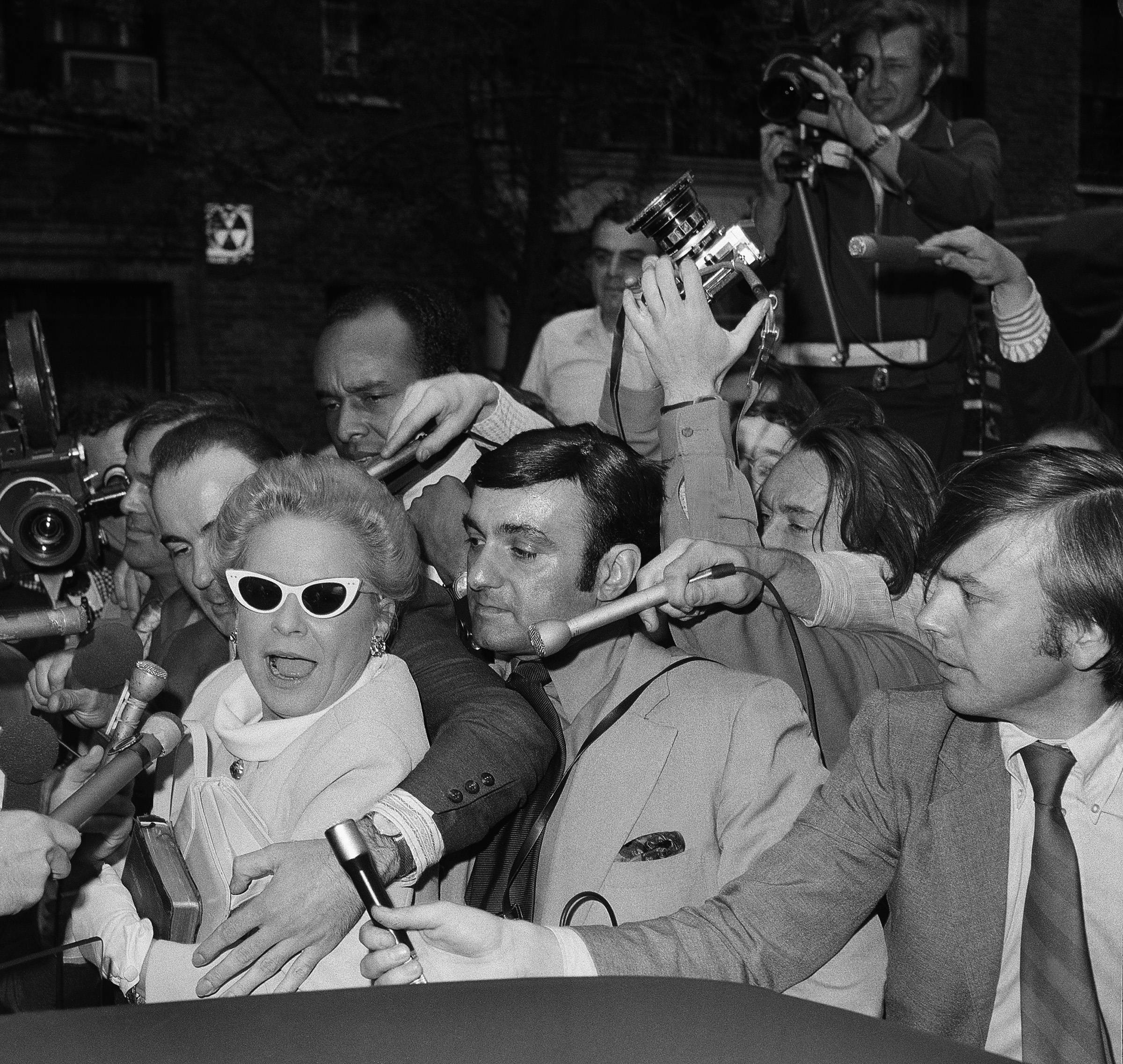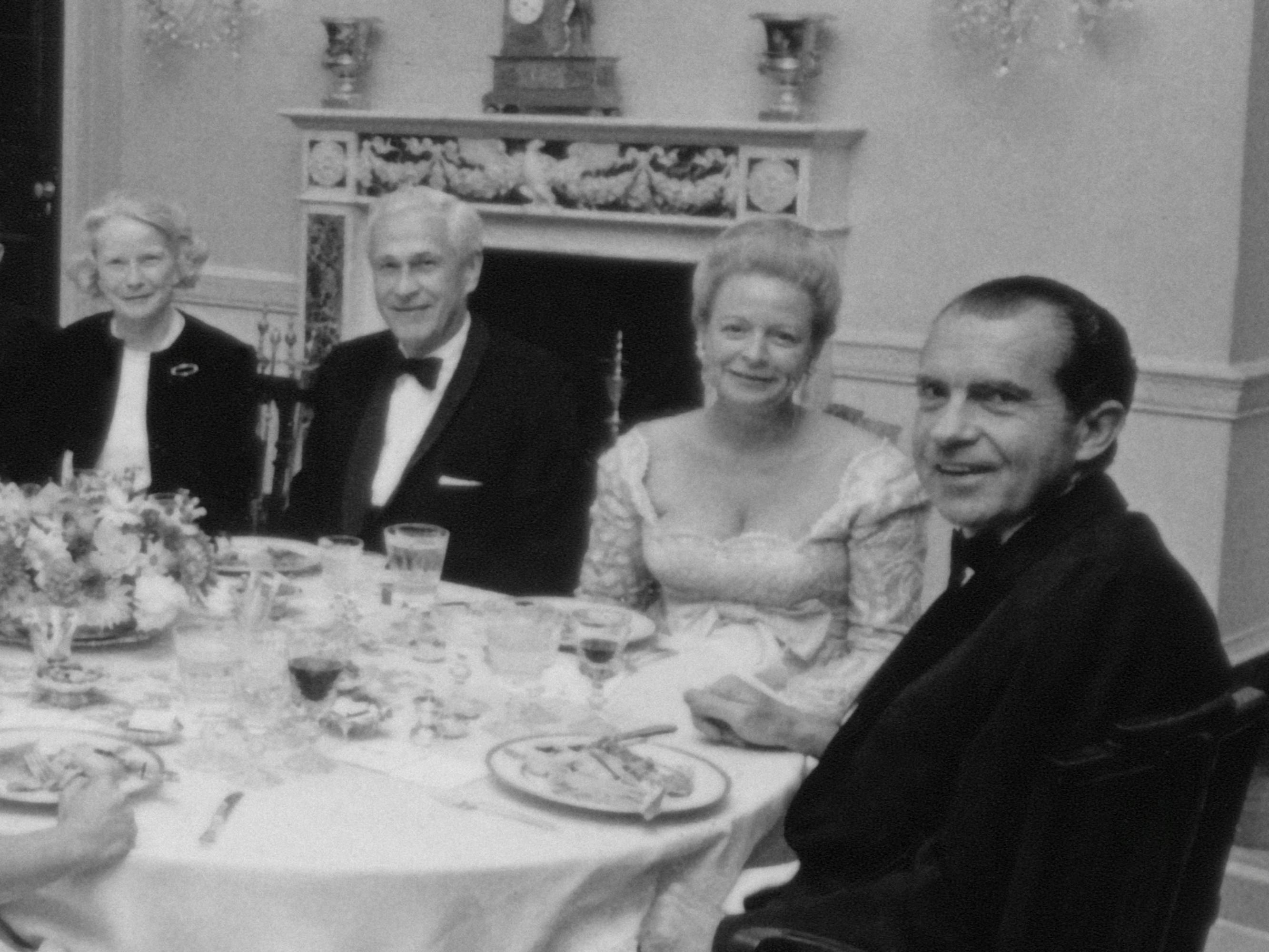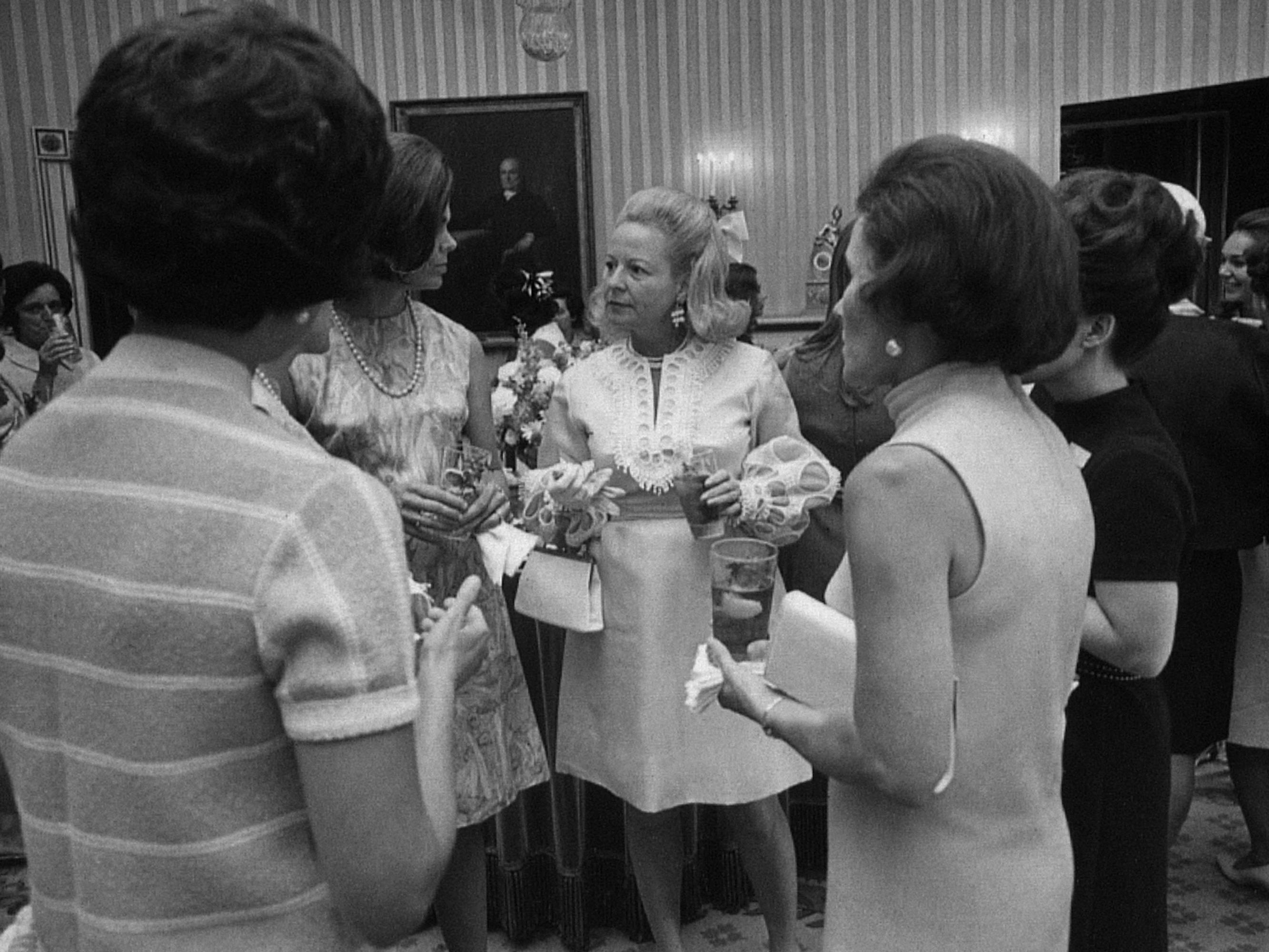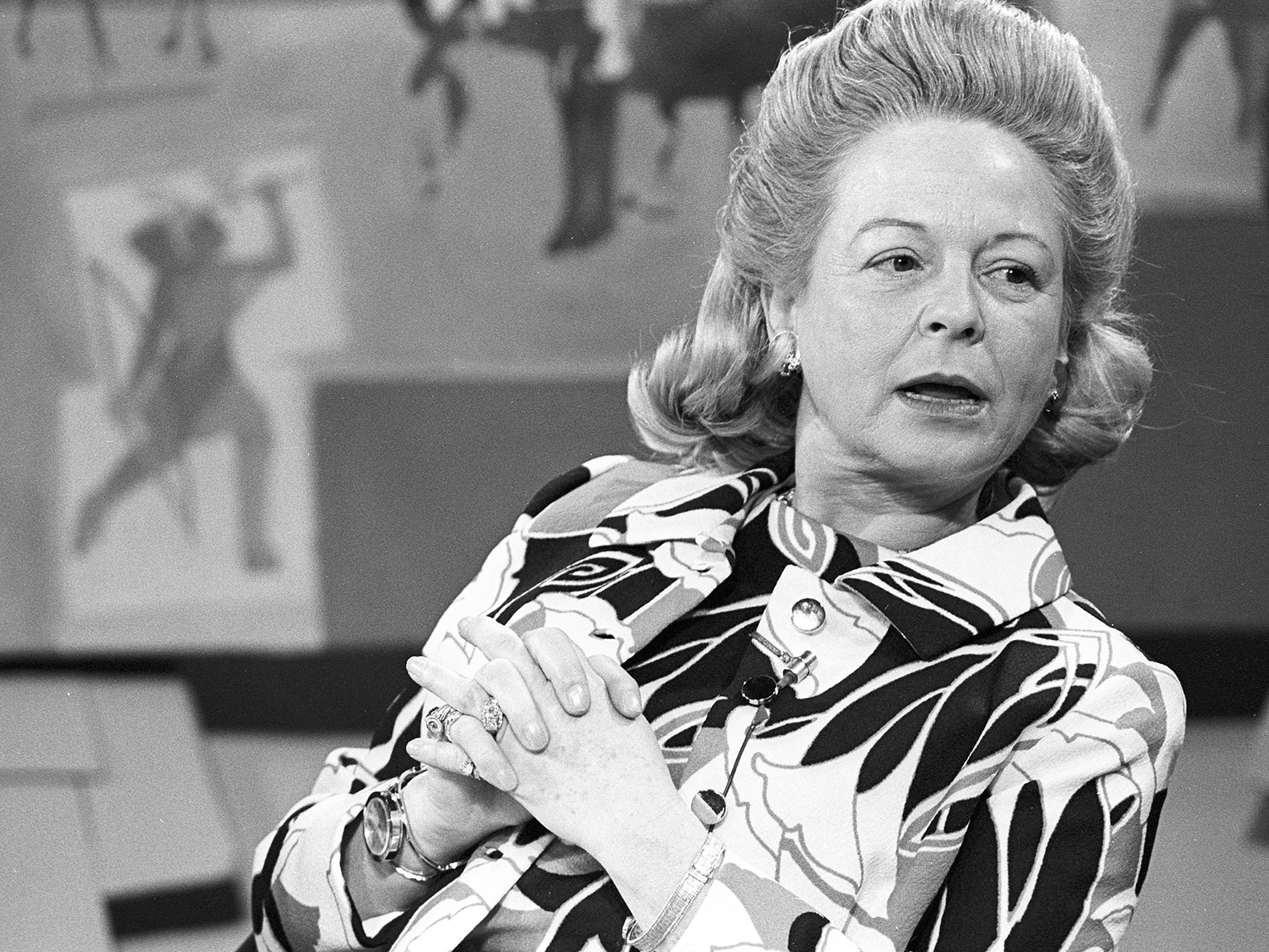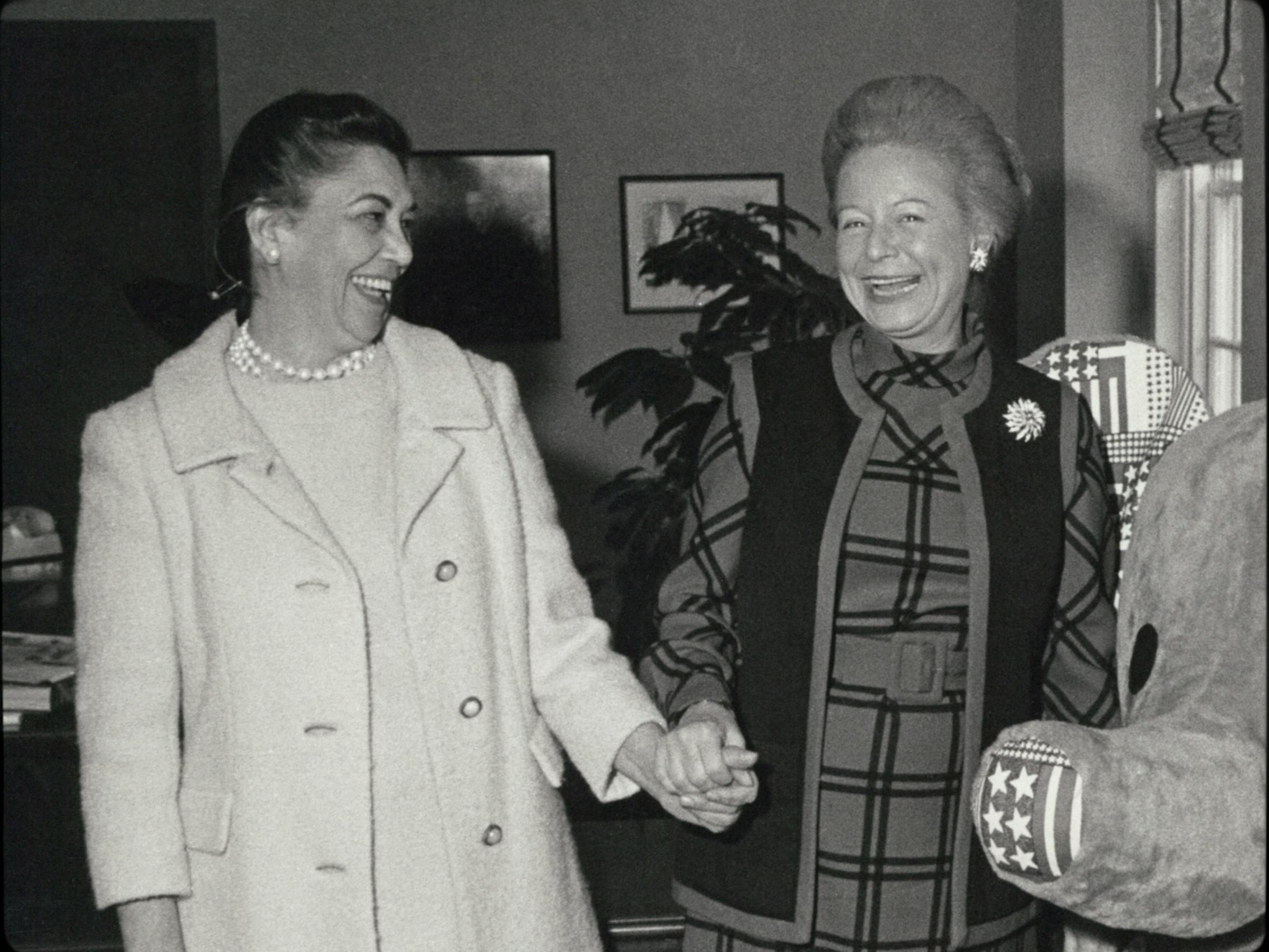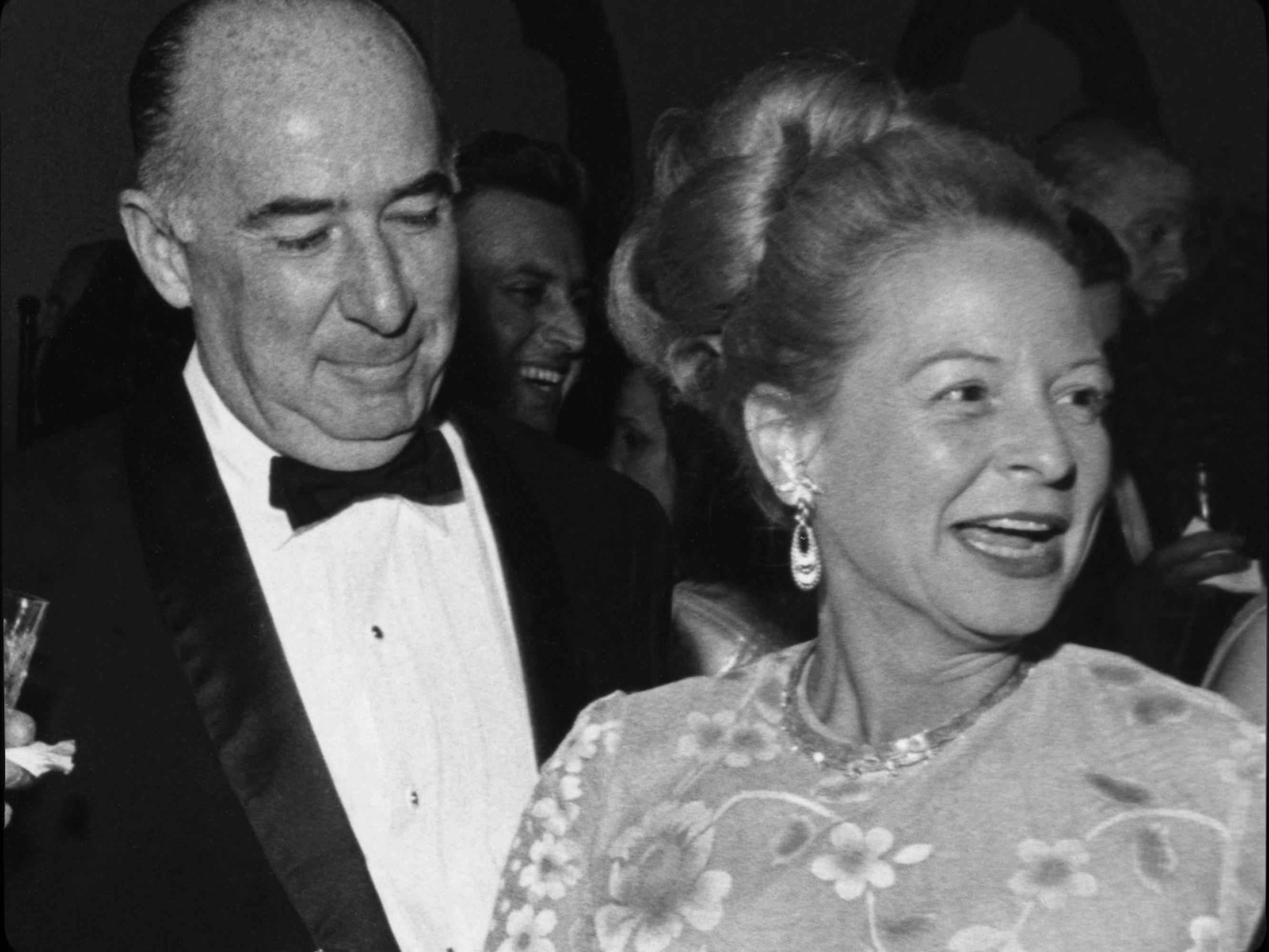She was integral to the unraveling of Watergate and the end of Nixon. So why has this outspoken woman been mostly left out of history?
We often lean on the epic men — both heroes and villains — in telling tales of great historical events like Watergate. The definitive book, by Carl Bernstein and Bob Woodward, describing Richard Nixon’s fall from grace is literally titled All the President’s Men. With that in mind, it’s no surprise that a woman named Martha Mitchell — infamous enough to land the cover of Time in 1970 — is largely forgotten for the role she played in the scandal. “I’m convinced if it hadn’t been for Martha,” Nixon once said, “there’d be no Watergate.”
The Martha Mitchell Effect, a 40-minute documentary co-directed by Anne Alvergue (The Business of Birth Control) and Debra McClutchy (The Booksellers), is reframing the narrative of the now epochal event of the 1970s. While the film features interviews with experts — such as journalists Connie Chung and Sally Quinn, and President Nixon’s deputy assistant, Dwight Chapin — the story is told largely with grainy archival footage, as well as the infamous audio tapes that Nixon recorded during meetings in the White House. Candid TV interviews with Mitchell, conducted while she was right in the eye of the political storm, give an unfiltered take on the good trouble she caused in the halls of 1600 Pennsylvania Ave.
Wife of Nixon’s U.S. Attorney General John Mitchell, Martha had a tendency to chat it up with political reporters, often after a drink or two, and gossip about governmental information that could then end up in the newspaper. Originally from Arkansas, she was dubbed “The Mouth of the South.” At first, the typically media-shy Nixon administration saw her as an asset, a flashy populist who charmed the press. But as the 1972 campaign for Nixon’s re-election heated up, with her husband the head of the re-election committee, Martha started rumbling to contacts about “dirty tricks” she believed were being played by the Republican party in the election.
Before long, Martha became a reliable media source for inside chatter, even if she implicated her husband, who would eventually serve 19 months in prison for his involvement. At one point she claims she was held captive as a “political prisoner” to prevent her from contacting the press, even tranquilized by a doctor to shut her up. But none of that worked: Martha would invite Woodward and Bernstein over to her Fifth Avenue apartment to nose around for info. She even began listening in on her husband’s phone calls, and told reporter Helen Thomas that Nixon should resign, one of the first public figures to openly do so.
As a woman, she wasn’t given the treatment she deserved, and Nixon cronies began circulating rumors that she was in poor mental health to further discredit her as hysterical, or even hallucinating. Here, the film aligns with a number of recent documentaries about infamous women who were treated unfairly by the press and the powers that be; the archival footage is barren and grizzled including interviews in which Martha says she was a candidate for alcoholism. Martha’s husband eventually divorces her, leaving her destitute. “They tried to kill me,” she says in unearthed audio. “I was scared to death.”
When Nixon did eventually resign, Martha was vindicated, if isolated from her former circle and bitter about her treatment. She made triumphant talk show appearances, expressing that Watergate would end up being the best thing for American politics by forcing elected officials to tell the truth and be upfront about their dealings. That, of course, is one thing she did not turn out to be correct about. Still, Martha did her part to make Washington a little more honest, even at a great personal cost. “I would like to go down,” she said, “for doing some good for my country.” Mission accomplished.
